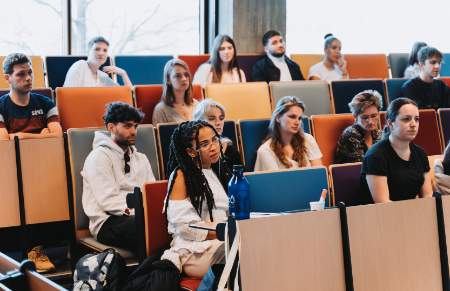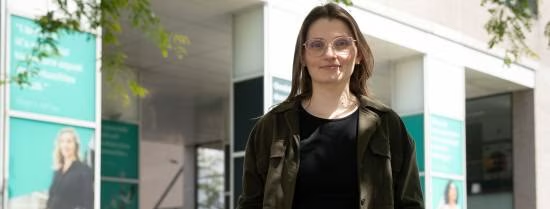Helena Scharnowski
Student Forensic and Legal Psychology
Helena Scharnowski, student of the Master Forensic and Legal Psychology, wrote this blog to tell about her experience with the moot court in the Forensic and Legal Psychology department during her studies.
Today I would like to take some time to speak about the moot court in the Forensic and Legal Psychology Master track.
The moot court was created in order to provide students with the option of doing a 20 EC research internship (thesis) as well as gaining some experience within legal psychology without having to struggle with finding an internship within the legal psychology realm. As many of us know, getting an internship as a student is already a considerable challenge; now, imagine trying to get an internship within the legal psychology field. Almost impossible! This is simply because this type of work is highly confidential and delicate, I mean imagine being an intern and having to help a team of legal psychologists evaluate if someone should be locked away for murder? This can be extremely scary and overwhelming.
Thanks to our wonderful professors at EUR, Eric Rassin, Irena Boskovic and Melissa de Roos, students are able to gain some insight into the work of a legal psychologist through the moot court period (that's if you choose it).
The moot court period takes place from February to April. During this period, we had approximately one to two lectures a week discussing real-life cases as well as different techniques on how to approach a case as a legal psychologist and, lastly, the difficulties found within the field of legal psychology. We had world-renowned professors such as Dr. Jelicic and Dr. Giromni give us lectures on their expertise. This was an amazing experience because we were given the option to engage with experts within the field of legal psychology, thereby gaining valuable knowledge about this field.
My favourite topic was by Dr. Luciano Giromini, who taught us about faking bad and faking good (also known as malingering). It was quite an interactive lecture in the sense that we were not only taught about this type of behaviour, but we also did some tests that identify malingering to see for ourselves how these tests work. In fact, this lecture gave me direction on how I could tackle the assignment we had to hand in for the moot court (I’ll get to that in a second). Furthermore, what pleasantly surprised me was that when I emailed some of these professors to ask them for more insight into the field of legal psychology, they all responded! And their response was extremely welcoming and informative.
Now, let’s look at the assignment. We are presented with three different cases (people who are on trial for different reasons) and have to conduct a psychological evaluation of various kinds to generate a legal, psychological report presented to the court. I will not disclose the three cases we had because, well, I want you all to be excited and surprised when you get them. Anyways, after handing in the report, we had an oral exam, in which classmates cross-examined our report in the presence of Dr. Rassin, Dr. Boskovic and Dr. van Roos, who were the judges. The oral exam was humorous but serious at the same time. Some students asked funny questions, whereas others were more serious and asked challenging questions ;) Either way, it was super fun.
I remember being sad after my oral exam because I came to realise that that’s it for the moot court. A wonderful experience is now stored in the memories of my past.
I’d like to end this blog post on an interesting note. You all probably know about the Johnny Depp vs Amber Heard trial? Well, both parties (Johnny and Amber) hired a legal psychologist to take the stand for them! And when I watched the legal psychologists give their testimonies, I knew precisely what they were talking about, their logic, their approach, etc. I, when watching the trial, felt like an expert in the field ;)
Moral of the story! We, students from the Forensic and Legal Psychology Master, are fortunate to have the opportunity to take part in a moot court program! It was definitely an experience of a lifetime.



